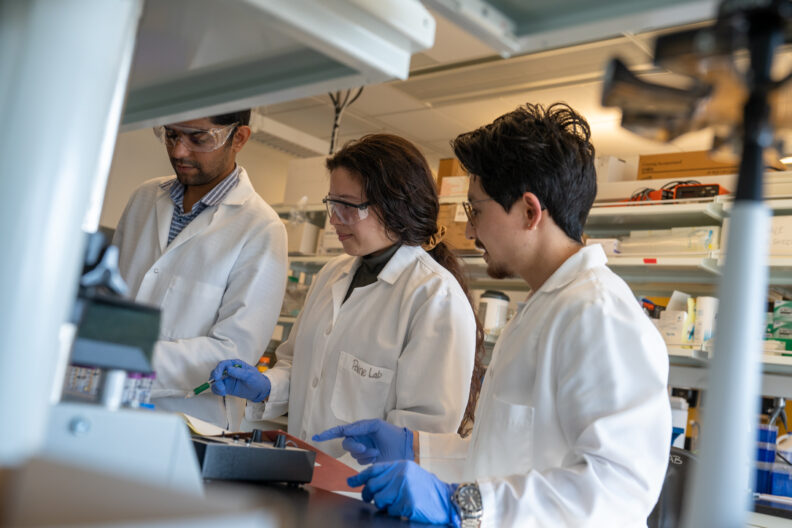
Research
What we do
The Paine laboratory researches how herbal and other natural products can adversely affect the disposition and action of pharmaceutical (prescription and non-prescription) medicines. Using biological assays involving human-derived tissues, analytical chemistry techniques, computer modeling and simulation, and human clinical studies, the Paine research group is discovering ways to predict, simulate, and assess these complex natural product-drug interactions. There are two overarching goals of the Paine laboratory’s research:
- Improve methods of identifying and predicting natural product-drug interactions.
- Improve patient safety by expanding evidenced-based knowledge about the risk of certain natural product-drug combinations.
Our affiliates
The Paine laboratory is a key member of the Center of Excellence for Natural Product Drug Interaction Research (NaPDI Center), funded by the National Institutes of Health National Center for Complementary and Integrative Health. Consisting of four Cores (Administrative, Pharmacology, Analytical, and Informatics) based out of the University of Washington, the University of North Carolina at Greensboro, and Washington State University Spokane, the mission of the NaPDI Center is to develop a set of Recommended Approaches to guide natural product-drug interaction research on a broad scale. The NaPDI Center is currently investigating five widely consumed natural products as potential precipitants of adverse pharmacokinetic interactions with drugs, specifically cannabis, goldenseal, kratom, cinnamon, and oregano. Dr. Paine leads the NaPDI Pharmacology Core and serves as the Principal Investigator for the NaPDI project.

But natural products are safe, right?
Approximately 20% of American adults acknowledge taking at least one botanical product. Many people take such natural products, which include supplements, herbs, nutra-ceuticals, and exotic beverages, with pharmaceutical drugs. Because the US Food and Drug Administration does not regulate natural products in the same manner as drugs, most natural product-drug interactions are serendipitous.
Some of these interactions can have serious clinical effects. Well-known examples of adverse natural product-drug interactions include the “grapefruit juice effect” and the potentially life-threatening effects caused by taking St. John’s wort with certain drugs. For example, St. John’s wort can cause some post-organ transplant medications to be ineffective, and taking St. John’s wort with certain anti-depressive medications can cause serotonin syndrome.
Previous projects
Previous lab members have researched the drug interaction liability of a variety of natural products, including green tea, milk thistle, grapefruit juice, green tea, and cranberry juice. Please visit the NaPDI website for a complete list of Paine laboratory and affiliate publications.
Opportunities
Interested in contributing to this exciting research? Visit the Join Us page to learn more about available opportunities in the Paine laboratory.